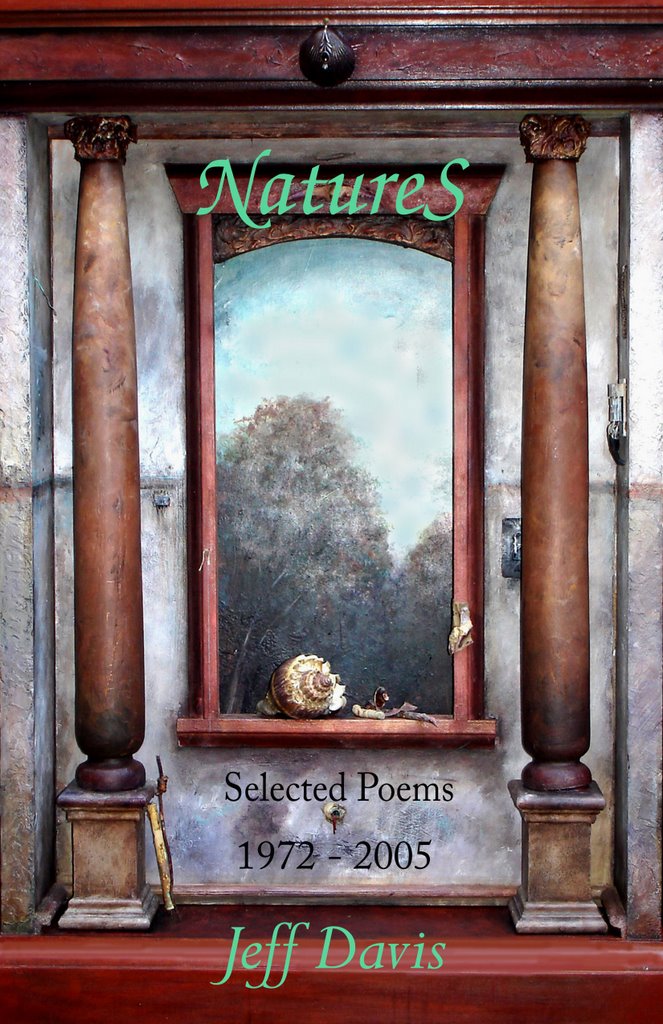Two hundred birthdays for Mr. Poe

Edgar Allan Poe, whose practice as a poet and writer of fiction explored territories distinctly different from those available in the contemporary English tradition - and who, as a consequence, became the first American poet who actually matters to anyone but historians (okay, okay, and the occasional poet willing to dig into the Puritan rumblings of his predecessors; yes, I'm thinking of you, Mr. Berryman) - saw the light of day for the first time on this date two centuries ago in Boston.
One of my early favorites (probably before high-school), the still engaging "Annabelle Lee", the last poem he completed:
Most of his work is available now over at WikiSource. Not there, though, the remarkable, still little-read (so far as I can tell) Eureka, which Poe subtitled "A Prose Poem," though its additional subtitle offers a more reliable clue as to its focus: "An Essay on the Material and Spiritual Universe." It's nothing less than a cosmology, an exploration of the nature of the universe. For it, you'll need to journey to the Edgar Allan Poe Society of Baltimore, which posts the 1848 text.
It was many and many a year ago,
In a kingdom by the sea,
That a maiden there lived whom you may know
By the name of Annabel Lee;
And this maiden she lived with no other thought
Than to love and be loved by me.
I was a child and she was a child,
In this kingdom by the sea:
But we loved with a love that was more than love —
I and my Annabel Lee;
With a love that the winged seraphs of heaven
Coveted her and me.
And this was the reason that, long ago,
In this kingdom by the sea,
A wind blew out of a cloud, chilling
My beautiful Annabel Lee;
So that her highborn kinsmen came
And bore her away from me,
To shut her up in a sepulchre
In this kingdom by the sea.
The angels, not half so happy in heaven,
Went envying her and me —
Yes! — that was the reason (as all men know,
In this kingdom by the sea)
That the wind came out of the cloud by night,
Chilling and killing my Annabel Lee.
But our love it was stronger by far than the love
Of those who were older than we —
Of many far wiser than we —
And neither the angels in heaven above,
Nor the demons down under the sea,
Can ever dissever my soul from the soul
Of the beautiful Annabel Lee:
For the moon never beams, without bringing me dreams
Of the beautiful Annabel Lee;
And the stars never rise, but I feel the bright eyes
Of the beautiful Annabel Lee;
And so, all the night-tide, I lie down by the side
Of my darling — my darling — my life and my bride,
In her sepulchre there by the sea,
In her tomb by the sounding sea.
Thanks, E.A.P.
~~~~~~~~~~~~~~~~~~~~~~~~~~~~~~~~~
Update: Here's Poe's astrological chart, drawn with the Sun in the first house (that is, as a Solar chart), since we don't know the time of his birth.
The thirty second reading: Sun conjunct Mercury, so born to communicate; Venus conjunct Moon, so a focus on love and feeling within relationships (as with "Annabelle Lee" and many of his other poems); and Pluto conjunct Jupiter, so a real urge to achievement and innovation.
Labels: birthdays, charts, Edgar Allan Poe, poets


0 Comments:
Post a Comment
<< Home